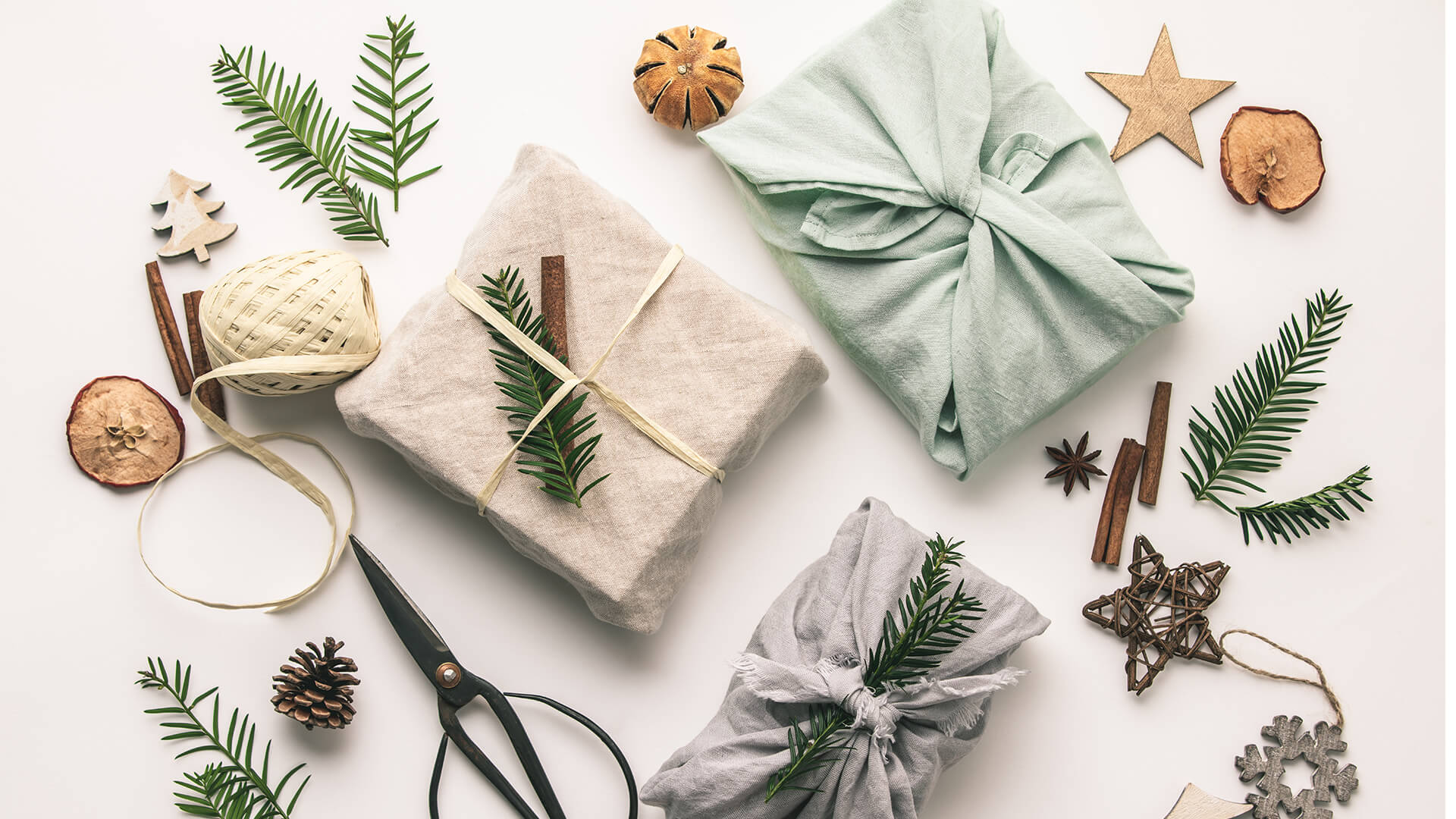
As a company and as individuals, Haws, purveyors of the finest, hand-crafted watering cans, continues to learn and grow every day, doing everything that it can to become a better, more responsible company for the future. Haws believes that it’s up to all of us to search for more ethical ways to live, staying mindful of consumerist habits, only buying what is needed, investing in lasting quality, and seeking out ethical companies.
Believing that together we can all make a difference, it has developed a guide to help you make your Christmas as sustainable as possible. Here are six top tips to help you show your love for the natural world, save the planet’s resources, and celebrate Christmas at the same time.
1. Shop sustainably
A lot of waste that occurs over Christmas is around our choices of Christmas gifts. Retailers work hard to try and get us to part with our cash to buy the latest gadgets and trinkets, only for them to be replaced the following year.
Why not think sustainably and give a gift that will last a lifetime? Haws watering cans are built to withstand the test of time. Their longevity reduces the need for landfill, and each one is made in the heart of England, using local materials that are carefully sourced for sustainability and quality. Each metal can is handcrafted, so no two are the same and, with a little care, it should become a part of your family for generations to come.
2. Use alternative wrappings
The majority of wrapping paper is still not recyclable, with its shiny, metallic finish, and millions of rolls are binned every year. It’s best to bypass this entirely, by using brown paper and string – which can look very chic – or by making the wrapping a part of the gift, by using a stylish silk or cotton scarf.
3. Cut your food waste
We all love to over-indulge over Christmas, but try to make the most of your leftovers by putting them to good use rather than binning them. They can be frozen and saved for a mid-week, post-Christmas festive feast, or transformed into something entirely different – most leftovers will make a delicious soup. For items that don’t want to eat (perhaps you really have had enough of sprouts) can be composted or popped into a Bokashi bin or wormery, to help put goodness back into the soil, and grow food for more feasts!
4. Take some time to enjoy nature
Christmas can be a stressful time of year, with a lot of rushing around and trying to make everything perfect, but remember to take away from the stress by spending some time with nature. It’s a great way to reboot and enjoy some mindfulness, and can help remind you of the beauty and importance of nature.
5. Make a sustainable tree choice
A great option for an eco-friendly Christmas tree is to buy a potted one. For the lowest carbon footprint, look for UK-grown varieties, such as Blue Spruce or Nordman.
Once Christmas is over, simply pop it in your garden in its pot. The following year you can bring it back into your house and decorate it, before putting it back in the garden again once Christmas is over – the ultimate in both reusing and recycling!
When your tree is inside, keep it away from radiators and fires, and make sure that the soil is kept moist – but not waterlogged. Once you’re ready to pop the tree back outside after Christmas, spend a few days hardening it off so the cold weather doesn’t shock it
6. Reduce, reuse, recycle
It can be easy for your usual good intentions to go out of the window at Christmas, with so much else going on, but it’s important to keep this phrase in mind over the festive period, when waste is typically at its highest. We can each have an impact if we reduce what we buy or buy sustainably, reuse what you already have, and make sure that anything that has to be thrown away is properly recycled where possible. Don’t forget, too, that many councils also offer a recycling service for your Christmas tree, so have look into that, and get it booked in if it’s possible.
Haws has recently developed ways in which to make its production and packaging as sustainable as possible and this includes a reengineering of its boxes. Whilst simple and utilitarian in aesthetics, they are also environmentally friendly, being 100% recyclable. The unique and eye-catching tessellated design echoes the shape of a can and enables Haws to store at least 20% more products in its warehouse, reducing both storage and postage costs.
The metal cans also come packaged in a fully compostable bag within the box to avoid any damage in transit.
The dedication to sustainability runs deep within the company, as Richard Pennock, Haws marketing manager explains: “’Using a watering can means much less water is wasted than with a garden hose and because our watering cans are designed to last a long time, (or a lifetime), we help avoid the need for landfill. Using a watering can also does good things for your health and wellbeing – fresh air, physical activity and food for your soul”.
Haws is also dedicated to keeping manufacturing local, in Birmingham, and is a proud partner of 1% of the planet, Woodland Trust and TreeSisters.



















